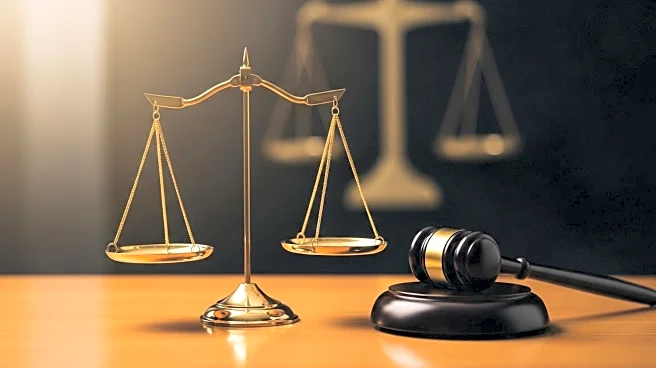What's Happening?
The Trump administration has announced plans to deport Kilmar Abrego Garcia, a Maryland resident, to Eswatini, a small African nation. This decision follows Abrego Garcia's objections to being deported to Uganda, citing fears of persecution or torture. Previously, he was mistakenly deported to El Salvador, where he was detained in a notorious prison. Abrego Garcia is currently in U.S. Immigration and Customs Enforcement (ICE) custody, facing human smuggling charges. Despite a federal judge's ruling that he cannot be deported until early October, the administration is pushing for his removal. Abrego Garcia has expressed a preference to be deported to Costa Rica, which has indicated a willingness to grant him legal status.
Why It's Important?
This case highlights the complexities and controversies surrounding U.S. immigration policies under President Trump. The administration's hard-line stance on immigration has led to legal battles and international scrutiny. The decision to deport Abrego Garcia to Eswatini, a country with its own human rights concerns, raises questions about the ethical implications of such deportations. The case also underscores the challenges faced by immigrants with complex legal histories, as well as the potential impact on U.S. relations with countries involved in deportation agreements.
What's Next?
The legal proceedings surrounding Abrego Garcia's case are ongoing, with a federal judge set to hear testimony from Trump administration officials in early October. The outcome of these proceedings could influence future deportation cases and the administration's immigration policies. Additionally, Abrego Garcia's request for asylum in the U.S. remains pending, which could further complicate his deportation process.









